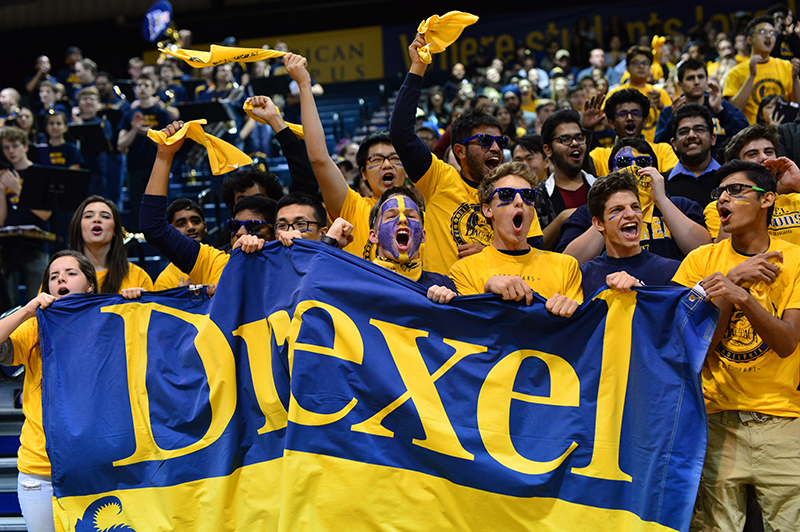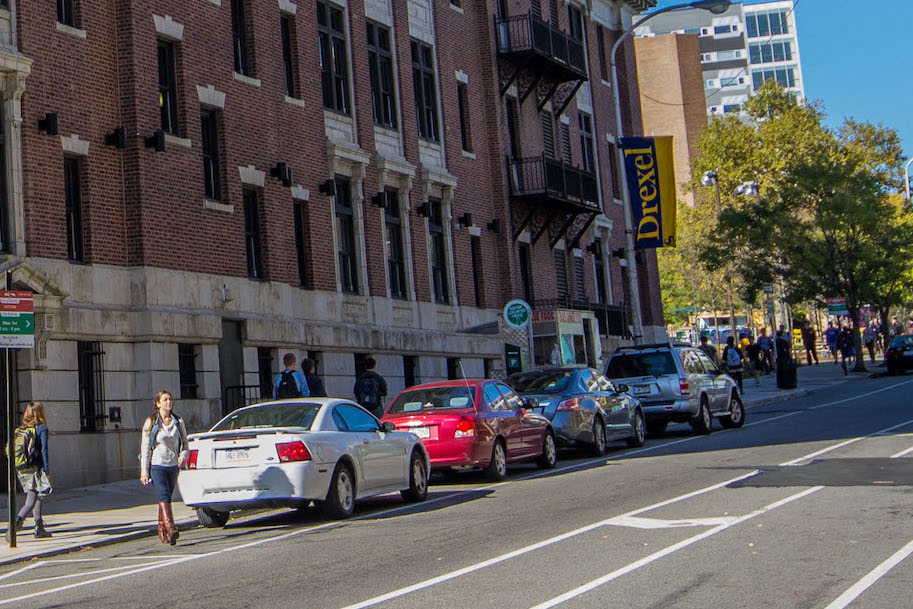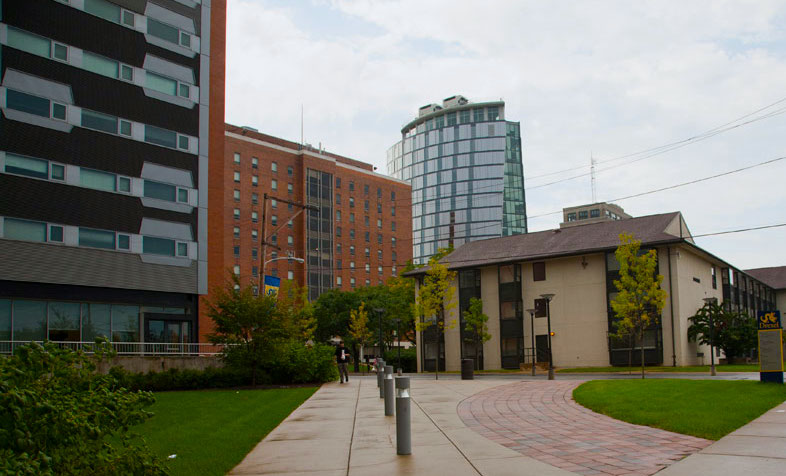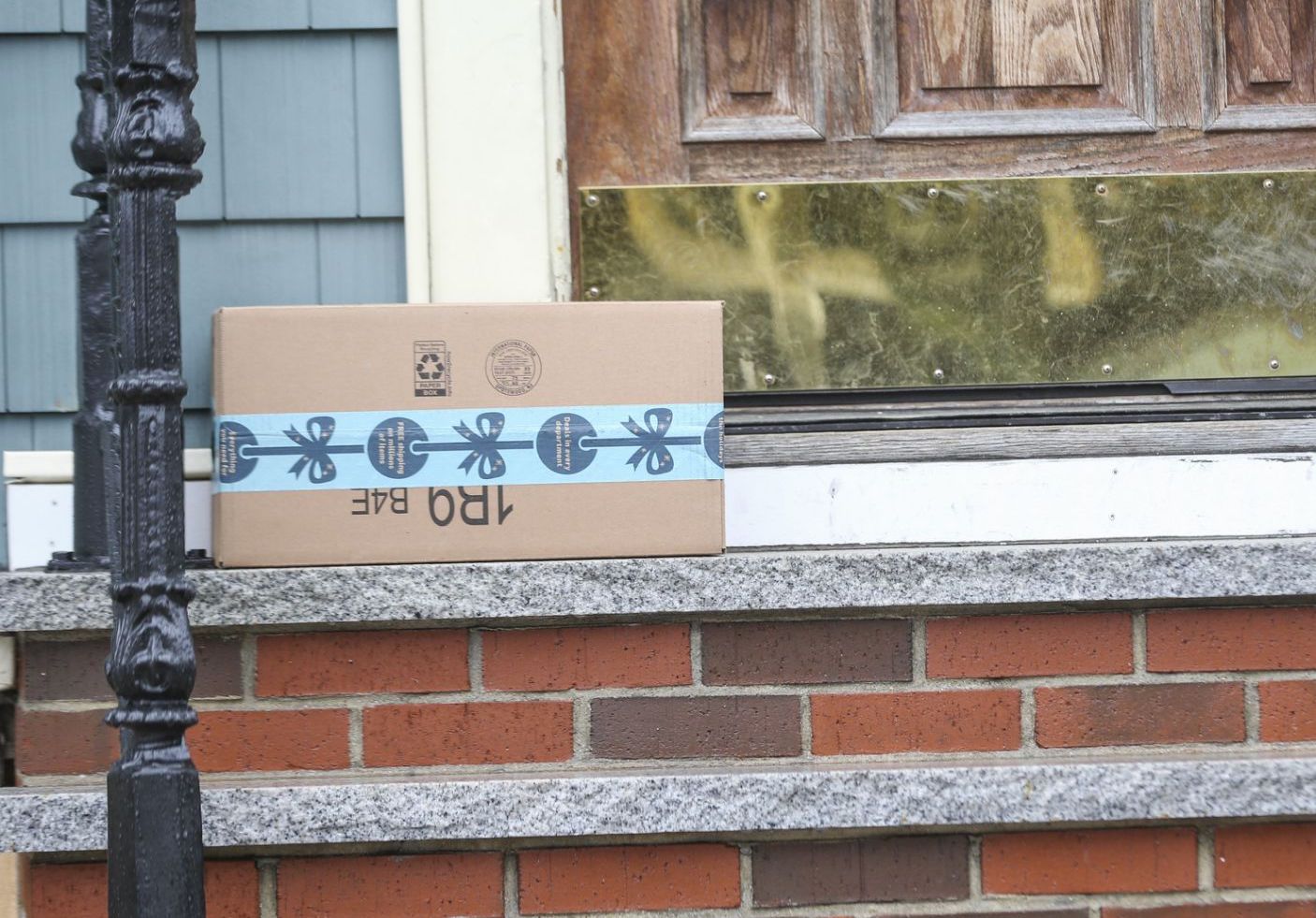Just like students take an online course at Drexel, students who are working as a resident assistant had to see sets of slides, answer discussion boards, complete quizzes and attend Zoom meetings for their training — except, unlike regular students, they have the big responsibility looking over all the students who recently moved back into the dorms in the middle of a pandemic.
Student move-in began on Saturday, Jan. 17, and lasted a whole week, unlike previous years when it only lasted a weekend. Each student had to pick up a time slot and each residence hall could move-in only five people per time slot, which made the process more time-consuming but also more controlled and safe.
Only the students assigned at each time slot were allowed inside the building — no friends or family members could help them complete the “rite of passage of move-in” because of the no-guest policy in all residential buildings. However, there was moving staff available to help them transport their luggage and heavy items into their rooms, sanitizing each bin after its use.
Immediately after move-in, students had to complete a COVID-19 test on Race Library Learning Terrace and stay in a “quiet period” until they received negative results, where they could only leave their rooms to go to the bathrooms or to pick up their to-go meals at each building’s front-desk at the lobby.
According to the Drexel COVID-19 Dashboard, there were 40 positive tests out of 2,448 screen tests of the week from Jan. 18 to Jan. 24 — which falls into the dates of move-in week — but housing officials could not say how many of these positive cases were students that had just moved.
Some of the COVID-19 guidelines also include registering everyday how are students feeling in the Drexel Health Check app, taking a weekly COVID-19 test and wearing a mask everywhere on campus except when they are alone in their room.
Once students test negative for the virus after moving in, they can leave their rooms and go to other places to study or work like the Bentley lobby, Ross Commons, some academic buildings that have opened for a few in-person classes and W. W. Hagerty Library that has opened through appointments only. Additionally, they can also use the REC Center since this past Monday, Jan. 25 with scheduled appointments and mask-wearing at all times.
Regarding on-campus dining, after months of Northside Dining Terrace being the only open dining hall with to-go options paid in dining dollars, Urban Eatery finally opened on Jan. 17 with an all-you-can-eat style. Then, this past week, Handschumacher Dining Center opened again with only to-go options. Students can work or eat their to-go options in two tents with heating installed in Race Street Lawn and the parking lot between Towers and Bentley halls with social distancing signalized.
In case any student tests positive for COVID-19, they will be transferred to North Hall, which is the residential hall allocated to quarantine students because it is suite-style and they can count with their own bathroom and a kitchenette. On the other hand, students that suspect to have been in contact with someone who had the virus will be put in isolation in Myers Hall but, unlike North, this residence hall is in the traditional style and has communal bathrooms.
Furthermore, dining will be delivering food via student orders in the GET app to all students in isolation or quarantine.
The only buildings that received residents to stay for the entire term are Van Rensselaer, Towers, Race, Millenium, Caneris and Bentley halls. Additionally, less than half of the regular number of first-year students returned to campus this term because every single room is at half occupancy; this means that one person is living in each traditional dorm and two to three people are living in each suite-style dorm, depending on the number of rooms of the suite.
Less occupancy also means fewer students hired as RAs this term.
“Usually, we have a staff of over 100 [RAs], but I would say that our staff right now is of around 40 [RAs],” Alexandra George, a third-year communication student, said. She has been working as an RA in Bentley Hall for two years.
This shortage of RAs has also meant more work for the ones hired this term, George said. She is the only RA in charge of two floors of residents in Bentley Hall and said that all RAs had to work extra hours for the move-in process.
“Proportionally we have to do more work. I [had] to do five shifts for five hours each, when usually move-in shifts are not 25 hours long,” she said.
However, in other buildings like Millenium Hall, RAs have to look up to three floors each, but they have the same number of residents in total as if they had normal occupancy on one floor, George said.
RAs moved into the buildings a week before residents, on Jan 2., and their training through Blackboard Learn began the following day with a few in-person components throughout the week like learning how to do building rounds, assuring RA access to all the buildings with IDs and taking COVID tests with all of the RAs at the same time to evaluate if the test center could control social distanced lines.
“I also got the impression that the professional staff of [Housing and Residence Life] didn’t even have the proper information from administrators at the university for how we’re handling to bed at the time of our training because we had a lot of questions and they were like, ´We don’t know, we’re working on it,´” George said regarding the training.
Most of the RA training was based on regular aspects that they need to know to host dorm residents like crisis management, response protocol, community building, housing operation and facilities, and leadership, said Amy Bevins, Resident Director for Bentley Hall and Assistant Director for Student Conduct. However, this year’s training needed another big component: COVID-19 procedures.
This aspect was covered by a Zoom conference with Dr. Janet Cruz, the Medical Director of Drexel Student Health, and Marla J. Gold, the Vice Provost for Community Health Care Innovation. “After this call, I felt way more calmed about living in a dorm with other people. They told us all the science and effectiveness of mask-wearing, how will it be almost impossible to get infected by someone with the virus if we are both wearing masks, and how Drexel is going to put a high priority on contact tracing when someone gets infected to avoid an outbreak,” George said, one of the Bentley RAs.
However, one of the biggest questions that RAs had since the last term when the only residence hall open was Race Hall, a suite-style non-traditional dorm, was not answered: how will COVID-19 guidelines be followed in traditional dorms with communal bathrooms?
“They haven’t even talked about or addressed the bathroom usage,” George said. “You can’t wear a mask when you’re in the shower, you can’t wear a mask when you’re brushing your teeth, you can’t wear a mask when you’re washing your face.”
Bevins, who is also the Resident Assistant of Bentley Hall, a traditional-style dorm, said that student policy mandates mask to be worn at all times except when students cannot, and showering or brushing the teeth would be instances when they cannot.
“We give responsibility to the RAs and the residents to put these guidelines. We don’t want to enforce them,” Bevins said. “It is their home, and we don’t want to enforce any guidelines, and we want to give them the freedom of figuring out what is going to work best as long as the guidelines they create don’t go against any existing university policies.”
Alexandra George and other RAs in Bentley decided to close every other stall, shower and sink. “In my experience living here last year, the bathrooms were never full and we had twice as many residents,” she said.
But this responsibility, in many cases, means an extra burden on RAs in these difficult times.
Additionally, RAs cannot control what residents do inside their rooms when the doors are closed. “We’re not trying to police residents, but the expectations are that [residents] still follow university policies like staying six feet apart and wearing a mask when you meet someone in your room,” Bevins said. “If RAs have enough reason to believe that people are violating social distancing rules through environmental clues like a lot of noise or violating quiet hours, then they may address that situation.”
Nonetheless, RAs and other residents are being put a big weight on their shoulders for making sure this reopening of campus does not go wrong.
First-year students that had just move into their college dorms for the first time are still trying to get adapted to these extraordinary times and make it work, said James Virtucio, a first-year Biomedical Engineering student.
Virtucio, who moved to Bentley Hall on Wednesday, Jan. 20, had first chosen to live in this dorm for the Fall Term because he got into the Honors College and liked their housing option. He had already selected a roommate and a room before Drexel announced that it will go fully remote that term.
“Then, I was just hoping we could move to campus on the Winter or Spring Terms, and I’m glad we were able this term,” he said. “I cannot live with [my roommate] now because all rooms are single occupancy, but we got lucky, and now we live next to each other”
He has not gotten much of a chance to interact with many people because of the social distancing guides, but he was hoping he could meet more people from his building through virtual building-wide activities like making a time capsule.
“I really truly love being an RA; it’s like probably the most rewarding part of my college experience, but I am scared. Especially because I am a leader to my residents, whether they know it or not,” George, who is also Virtucio’s RA, said. “Everywhere I go, my residents see me as an RA. So, even though I consider myself as someone who has been very safe when it comes to COVID, now I need to be that much more aware and be extra careful when making my decisions.”











